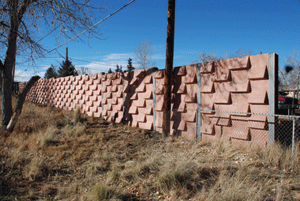Federal Oversight of Hydraulic Fracturing
Jim Classen’s letter in the summer issue of Mines opines that EPA regulation of hydraulic fracturing isn’t necessary, because it is already policed by state agencies. However, his reasons for why groundwater contamination is improbable do not square with what has been widely reported from a number of different sources.
In particular, hydraulic fracturing in the Marcellus Shale formation, which extends from upper New York State through Pennsylvania, West Virginia, and Ohio, has resulted in a number of lawsuits claiming contamination of drinking water wells, plus surface contamination. A number of well-regarded studies seem to confirm this. New York State is so concerned that the legislature recently enacted a moratorium on this process.
Unfortunately, the extractive industries have a poor environmental track record of creating problems and walking away, leaving local communities and taxpayers to pay millions of dollars for environmental cleanup. Sometimes, such problems are so huge that there simply doesn’t seem to be a solution, think Iron Mountain in Northern California, mountaintop removals in West Virginia and uranium tailings in the Four Corners area.
Industry always argues that no oversight is needed because they will be responsible citizens and leave a site cleaner than before, but experience proves otherwise: BP argued for years that deepwater drilling regulations were excessive, and Massey Coal repeatedly claimed that the federal Mine Safety and Health Administration was too zealous and intrusive. I strongly suspect the families of the 25 miners killed earlier this year feel the MSHA didn’t go far enough.
States frequently lack the manpower or funding to ensure that rules are being followed. And in many cases, state legislatures are easy marks for industry lobbyists working to keep meaningful regulations from being passed. Even at the federal level these same lobbyists are very powerful.
As citizens, it’s ultimately our responsibility to make sure that we aren’t passing environmental problems on to our children and future taxpayers to fix, and there is enough uncertainty around hydraulic fracturing that federal oversight is warranted.
Ian Berke ’64





